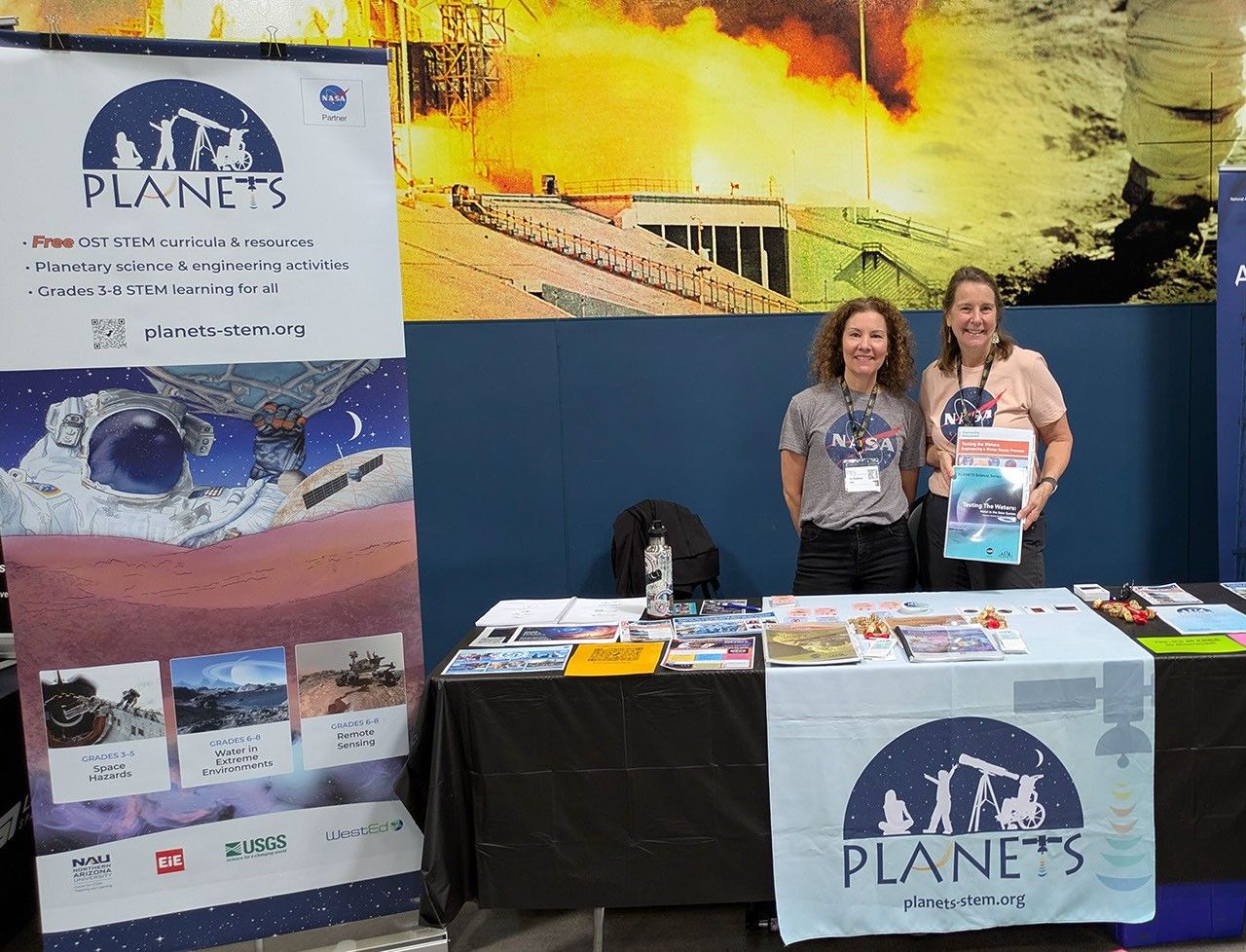Explore This Section Science Science Activation Sharing PLANETS Curriculum… Overview Learning Resources Science Activation Teams SME Map Opportunities More Science Activation Stories Citizen Science 2 min read
Sharing PLANETS Curriculum with Out-of-School Time Educators Out of school time (OST) educators work with youth in afterschool, community, and camp programs. Science, Technology, Engineering, and Mathematics (STEM) learning in OST can be challenging for multiple reasons, including lack of materials and support for educators. The NASA Science Activation program’s PLANETS project – Planetary Learning that Advances the Nexus of Engineering, Technology, and Science – led by Northern Arizona University in Flagstaff, AZ, provides both written curriculum and virtual educator support on planetary science and engineering.
PLANETS offers three curriculum units focused on themes from NASA’s strategic priorities and mission directives in planetary science over the next decade:
Space Hazards for learners in grades 3-5, Water in Extreme Environments, and Remote Sensing for learners in grades 6-8. PLANETS recently exhibited at two national conferences for educators to share these free NASA partner resources: the Space Exploration Educators Conference at Space Center Houston in Houston, TX on Feb 6-8, 2025 and the Beyond School Hours conference in Orlando, FL on Feb 13-16, 2025. Approximately 500 educators interacted with PLANETS team members to learn about the curriculum and to share their needs for OST learners. Some educators shared how they are already using PLANETS and how much their learners enjoy the lessons. In addition to sharing PLANETS resources, the team also had QR codes and flyers providing information about all the other Science Activation project teams, making sure educators grow in awareness of all that NASA’s Science Mission Directorate does to engage the public.
OST educators appreciate the integrity and quality of NASA-funded resources. One educator shared, “Free resources are always critical to youth-serving organizations. PLANETS also has everyday materials and educator dialogue on how to deliver, making it easy to pick up and use.”
Another OST educator said, “There are programs out there, like PLANETS, that truly help people of all backgrounds,” and yet another expressed, “I love the activities, and could see our youth engaging with it in a fun way.” Disseminating these types of NASA Science Activation program resources at regional and national venues is vital.
The PLANETS project is supported by NASA under cooperative agreement award number NNX16AC53A and is part of NASA’s Science Activation Portfolio. Learn more about how Science Activation connects NASA science experts, real content, and experiences with community leaders to do science in ways that activate minds and promote deeper understanding of our world and beyond: https://science.nasa.gov/learn
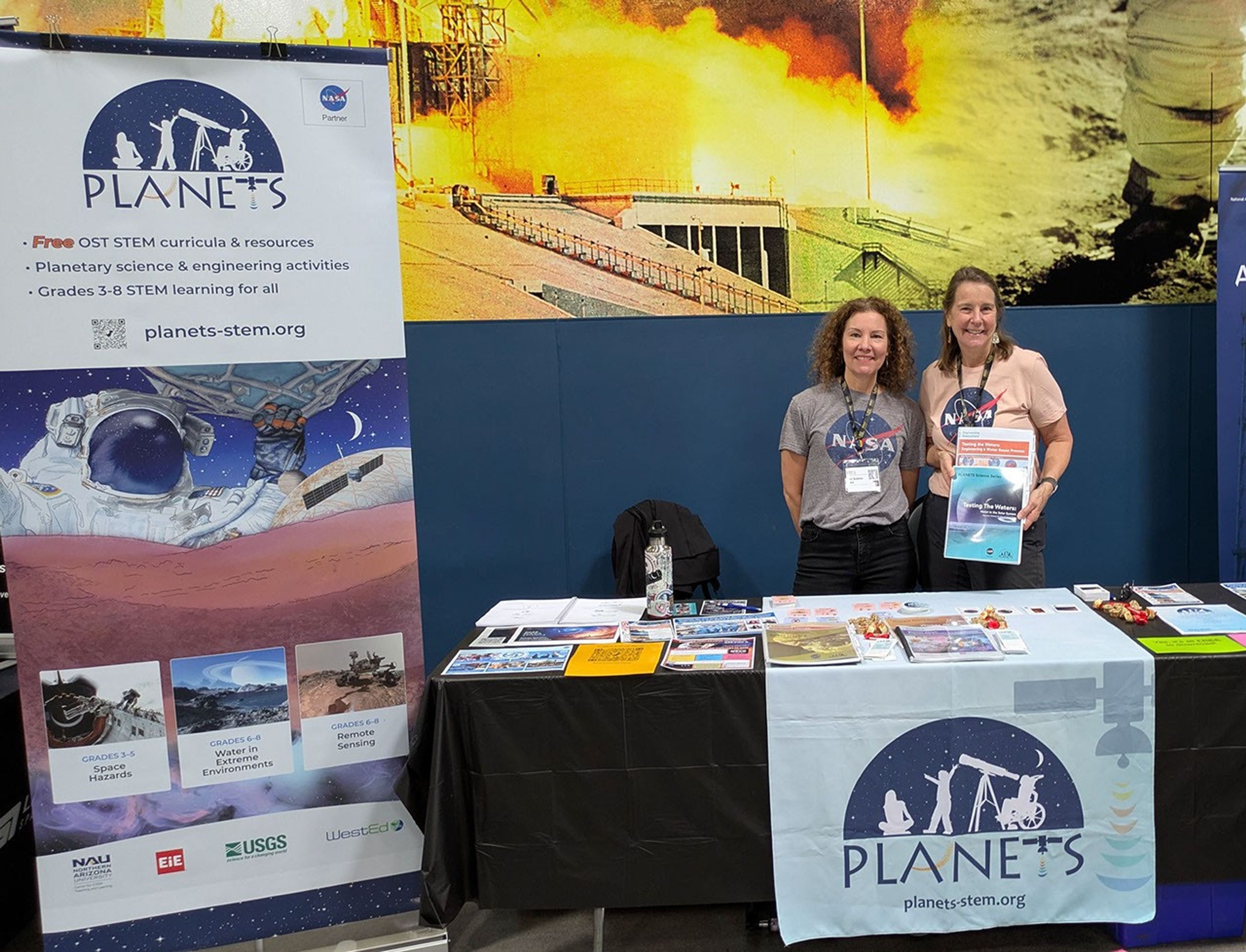 Members of the PLANETS team exhibiting at the Space Exploration Educators Conference in Houston, TX.
Members of the PLANETS team exhibiting at the Space Exploration Educators Conference in Houston, TX.
Details Last Updated Feb 25, 2025 Editor NASA Science Editorial Team Related Terms Science Activation Opportunities For Educators to Get Involved Planetary Science
Keep Exploring Discover More Topics From NASA James Webb Space Telescope
Webb is the premier observatory of the next decade, serving thousands of astronomers worldwide. It studies every phase in the…

This rover and its aerial sidekick were assigned to study the geology of Mars and seek signs of ancient microbial…

On a mission to “touch the Sun,” NASA’s Parker Solar Probe became the first spacecraft to fly through the corona…

NASA’s Juno spacecraft entered orbit around Jupiter in 2016, the first explorer to peer below the planet’s dense clouds to…

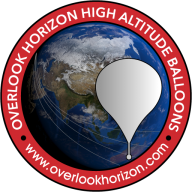
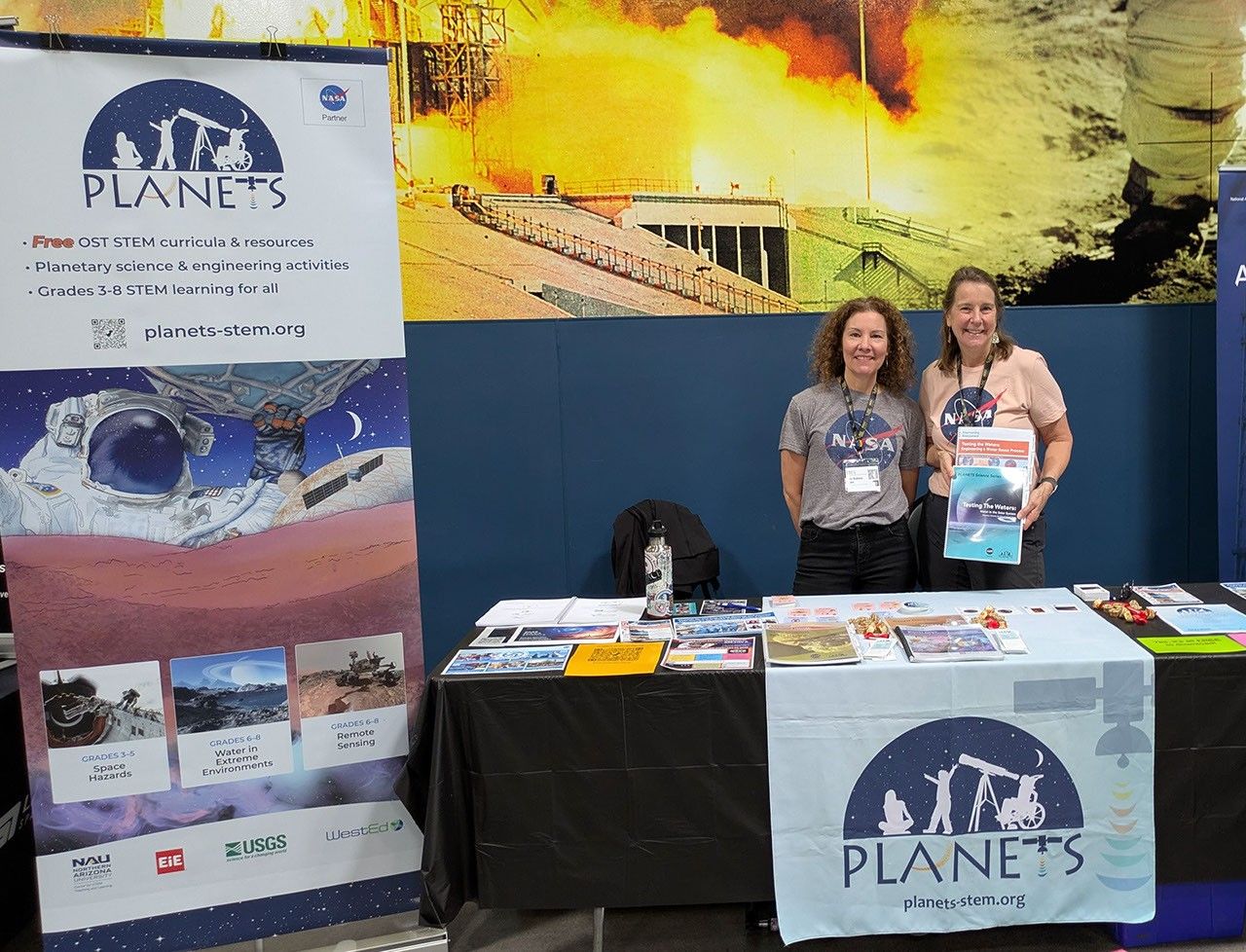
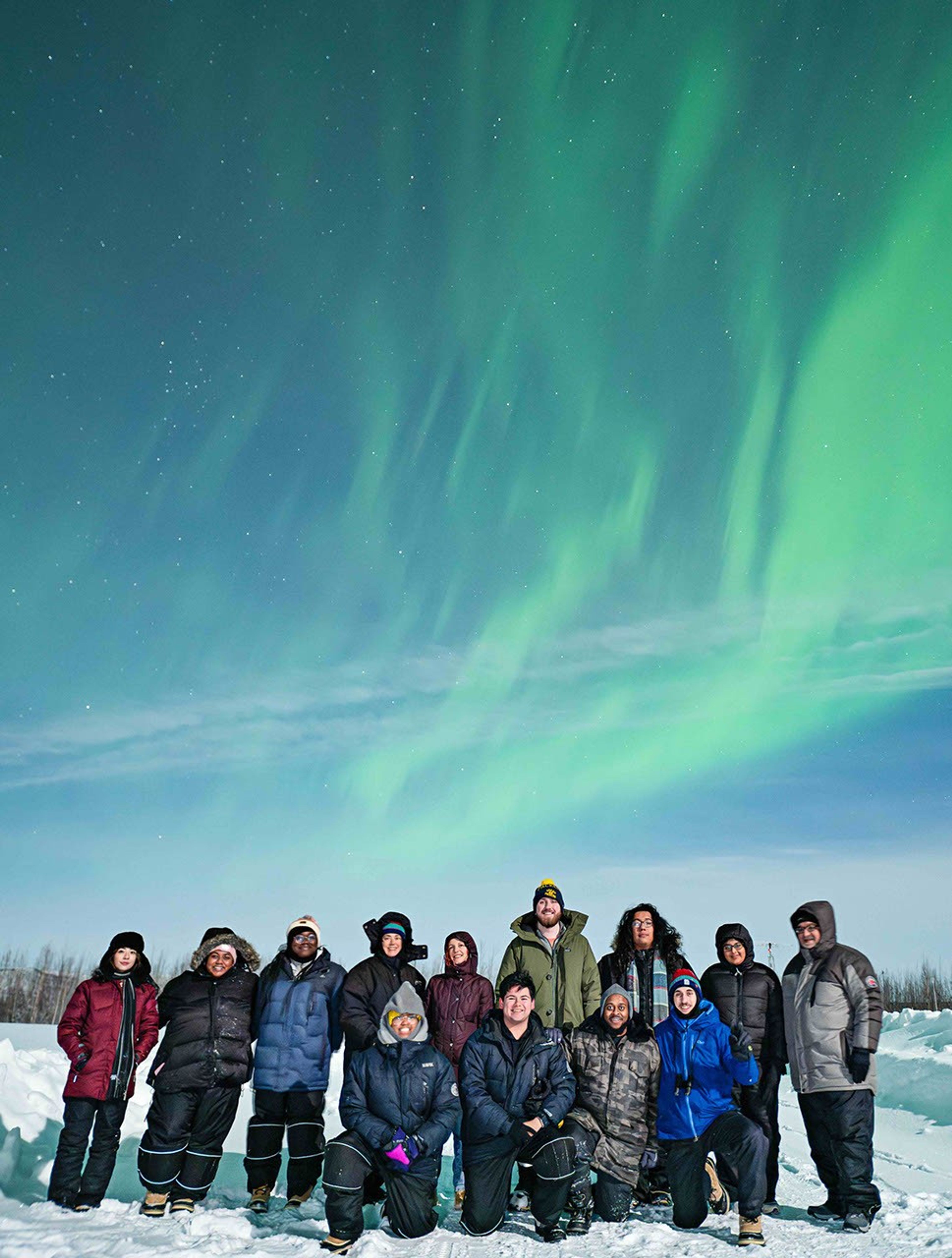 3 min read Eclipses to Auroras: Eclipse Ambassadors Experience Winter Field School in Alaska
3 min read Eclipses to Auroras: Eclipse Ambassadors Experience Winter Field School in Alaska
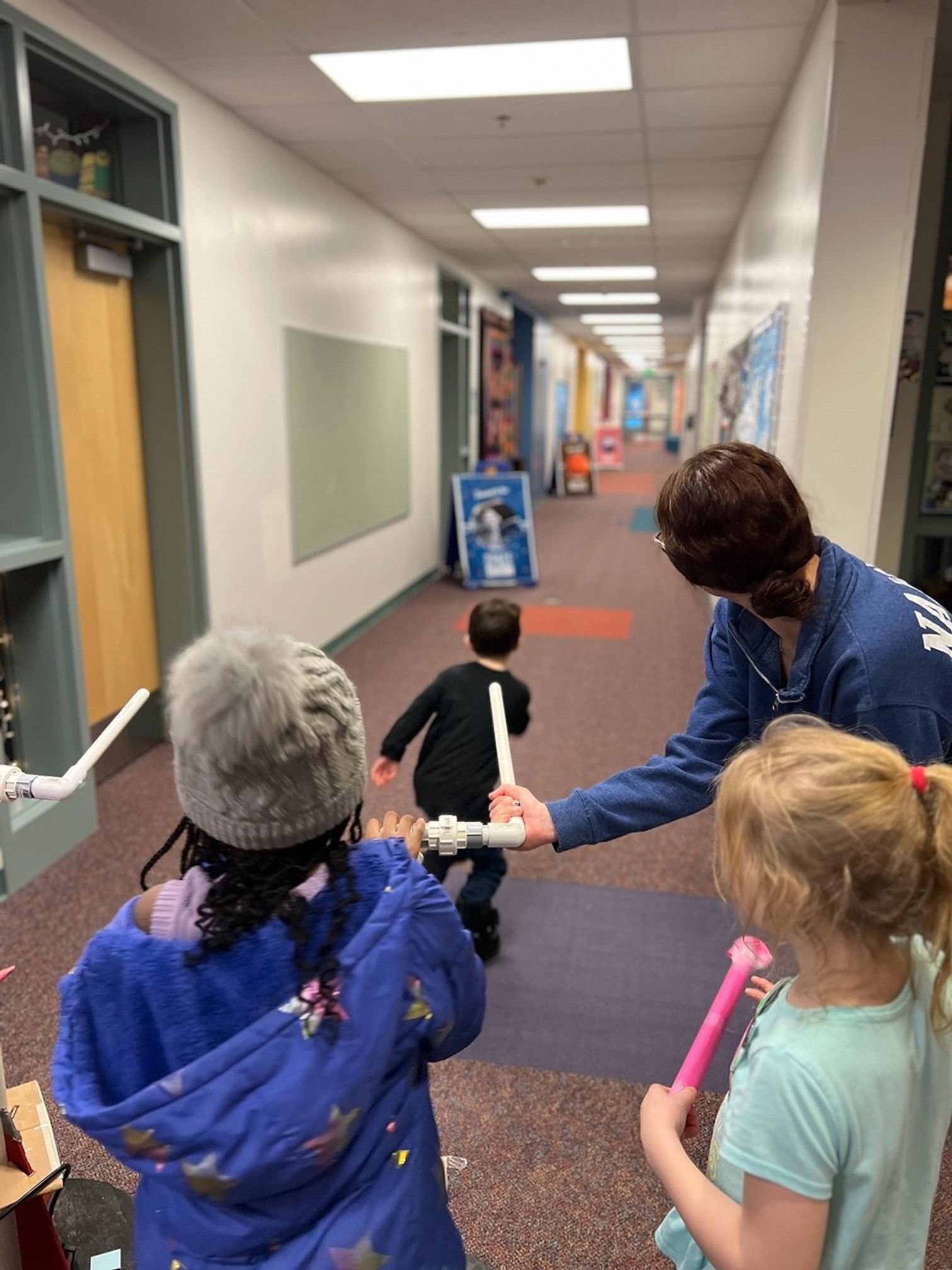 2 min read An Afternoon of Family Science and Rocket Exploration in Alaska
2 min read An Afternoon of Family Science and Rocket Exploration in Alaska
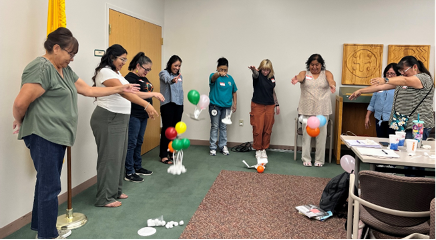 3 min read Tribal Library Co-Design STEM Space Workshop
3 min read Tribal Library Co-Design STEM Space Workshop
